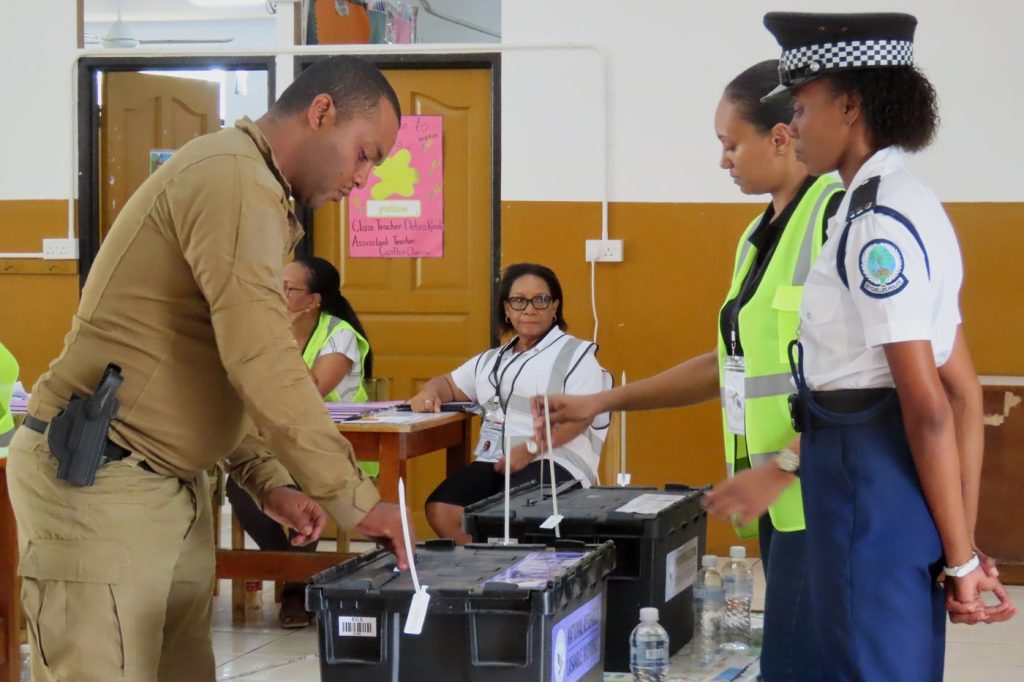On Saturday, the people of Seychelles participated in a significant election to select a new leader and parliament, with President Wavel Ramkalawan aiming for a second term in Africa's smallest country. The elections marked a pivotal moment for the nation as it continues to navigate political and social challenges.
Ramkalawan's principal challenger is Patrick Herminie of the United Seychelles Party, a seasoned politician who served as parliamentary speaker from 2007 to 2016. As polling stations opened at 7 a.m., there was a notable turnout in this renowned tourist destination, where voters exercise their right to choose the president for a five-year term. Long queues were reported at many polling sites throughout Seychelles, and electoral authorities confirmed that all stations opened punctually, facilitating a smooth voting process.
Wavel Ramkalawan, an Anglican priest-turned-politician, made history in 2020 by becoming the first opposition leader since 1976 to unseat the ruling party after his sixth attempt for the presidency. His government, representing the Linyon Demokratik Seselwa party, has centered its campaign around themes of economic recovery, social development, and environmental sustainability. With more than 77,000 registered voters, the stakes are high in this electoral battle.
In accordance with electoral rules, if no candidate secures over 50% of the votes, the top two contenders will compete in a runoff. Furthermore, the election occurs against a backdrop of active social concerns, notably culminating in a legal challenge initiated by activists just a week prior, pertaining to a controversial long-term lease granted to a Qatari company for part of Assomption Island. This agreement has sparked widespread criticism for allegedly prioritizing foreign interests over national welfare and sovereignty.
The transient nature of Seychelles' 115-island archipelago means it is critically vulnerable to climate change, particularly rising sea levels. This environmental threat is underscored in reports by the World Bank and the U.N. Sustainable Development Group. Additionally, the nation faces a severe drug crisis, with a 2017 United Nations report highlighting that Seychelles is a crucial transit route for narcotics. The situation has reportedly worsened, with data from the 2023 Global Organized Crime Index indicating that Seychelles has one of the world's highest heroin addiction rates. It is estimated that around 6,000 individuals in a population of approximately 120,000 are grappling with addiction, and some analysts suggest the true rate is as high as 10%.
Much criticism has been directed at Ramkalawan for his handling of the drug crisis, with detractors arguing that he has failed to make significant progress. Conversely, Patrick Herminie, despite his experience, has also faced scrutiny regarding his previous role as chairman of the national Agency for the Prevention of Drug Abuse and Rehabilitation from 2017 until 2020, and his inability to curb rising addiction rates during that period.
In summary, the election underscores critical challenges and concerns within Seychelles, from governance and foreign investment to addiction crises. As voters take to the polls, their choices will carry implications for the nation's future, navigating a complex landscape fraught with political, social, and environmental issues.











